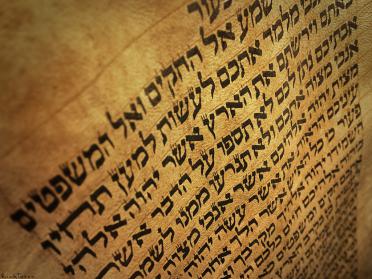Every week, parshaoftheweek.com brings you a rich selection of material on parshat hashavua, the weekly portion traditionally read in synagogues all over the world. Using both classic and contemporary material, we take a look at these portions in a fresh way, relating them to both ancient Jewish concerns as well as cutting-edge modern issues and topics. We also bring you material on the Jewish holidays, as well as insights into life cycle rituals and events...
“What will the goyim (non-Jews) think?” This stereotypical Jewish question is usually understood as an unhealthy, fearful concern for how the more confident, stronger, culturally dominant gentile host nation will look upon and treat the weak Jewish strangers living among them: “How will our behavior influence the way they treat us? Determine whether they accept or reject us?” Most people look down on the very question as an example of shameful “golussdik” (exilic) thinking; the weak, nervous, somewhat pathetic, frightened Diaspora Jew worried about how he and his community look to the gentile eye.
I have seen expressions of this (usually used jokingly) regarding the Jews surrounding Trump; most recently someone used the Yiddish phrase “a shonde fur di goyim” – a shameful embarrassment in the eyes of the non-Jews – about that paragon of both intellectual and emotional intelligence, Stephen Miller. I myself have expressed some embarrassment at the Orthodox (and non-Orthodox) community’s relationship with Trump and his policies.
In this week’s parsha, Va’etchanan, there is an interesting version of this “what will the goyim say?” meme. Moshe, as he will do again and again in the Book of Devarim, warns the Israelites to keep the Torah’s commandments once he’s gone: “Behold I have taught you laws and statutes which the Lord my God has commanded me, to perform them in the land which you will be entering into to possess. And you will keep them and do them, for this is your knowledge and wisdom in the eyes of the nations, who will hear about all these statutes and say ‘what an intelligent and wise nation is this great people’. For who is a great people who have God close to them, like the Lord our God, whenever we call to him, and who is the great people who has laws and statutes which are just, like this entire Torah which I give to you today?”
Interestingly, Moshe’s “What will the goyim say?” is the opposite of the way we typically use it. He seems to be supremely confident that our legal system, culture, and relationship with God will be, once we enter the Land of Israel, extremely impressive. The other nations will look at us and think us wise for having such a culture, such a code of law. Our Jewish lifestyle will be something to be proud of, something we know to be impressive to others.
I think that this promise by Moshe can also be seen as a kind of litmus test for Jewish behavior. Our normative Jewish lives are meant to impress, to showcase the wisdom and justice of our legal and religious heritage. The clear implication is that if the nations around us, watching us living our Jewish lives, are unimpressed, we are most likely doing something wrong. If our religious practices and communal behavior do not elicit a positive response from non-Jews, we are probably misunderstanding our heritage, and should perhaps rethink the way we are interpreting and actualizing our Jewish traditions.
The Sforno (Rav Ovadiah Sforno, Italy, 1475-1550) helps us understand how this might work. He points out that since we are labeled as a nation chosen by God, it would be a desecration of His name if we were to be viewed as stupid by the nations of the world. He says that the way we make sure that this doesn’t happen, and that we are seen as wise, is to make sure that our laws and system of justice “are righteous, and give no advantage or benefit to the judges, nor profit to communal officials and scholars. Rather, their entire point is justice and righteousness…” (Sforno on Devarim 4, 8).
For the Sforno, the litmus test by which we judge whether we are getting our Judaism right or not is to be sure that our Jewish society is just, and is not rigged in favor of the ruling class; that it provides justice to those who need and deserve it, and that our system of justice is not simply a tool to empower and enrich the already rich and powerful. This is what makes or breaks our Judaism, and turns it into either a kiddush Hashem – sanctification of God’s name – or hillul Hashem – desecration of God’s name, in the eyes of the nations of the world – how just and fair our society is seen to be.
Moshe says all this in the context of the Israelites’ impending entry into the Land of Israel, which makes a lot of sense – it is as a nation, running our own affairs in our own country, that we are judged. Diaspora communities have less control over their own behavior, as they have other legal and cultural systems they must obey. It is first and foremost as a nation among nations that we ask to be, and will be, judged. I will say, however, that both the nation of Israel, here in our homeland, and the Jewish communities in the Diaspora, sometimes seem to be engaged in a race to the bottom when it comes to impressing the world with how just and uncorrupted our Jewish culture and society is. Let’s see if we can do a bit better, and impress everybody with our Jewish values of seeking justice, watching out for the little guy, and preventing the powerful from gaming the system for their own benefit.
Shabbat Shalom,
Shimon



Get inspired by Va'etchanan Divrei Torah from previous years